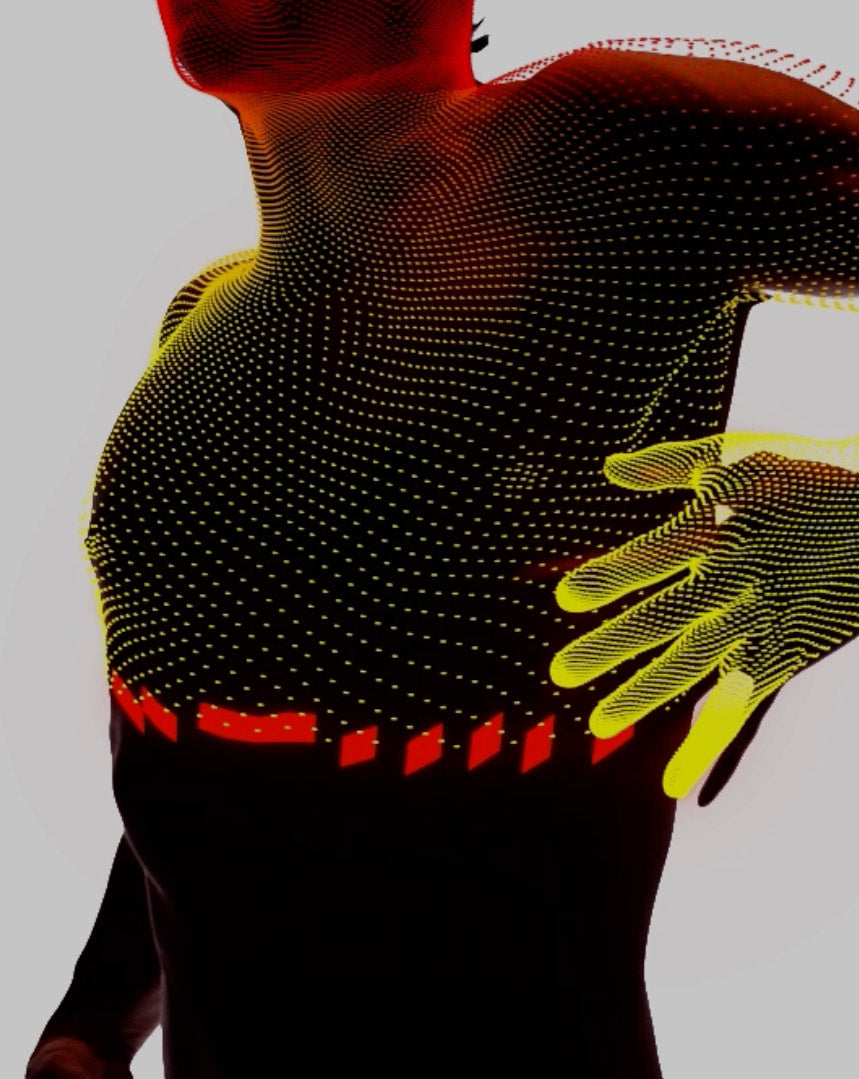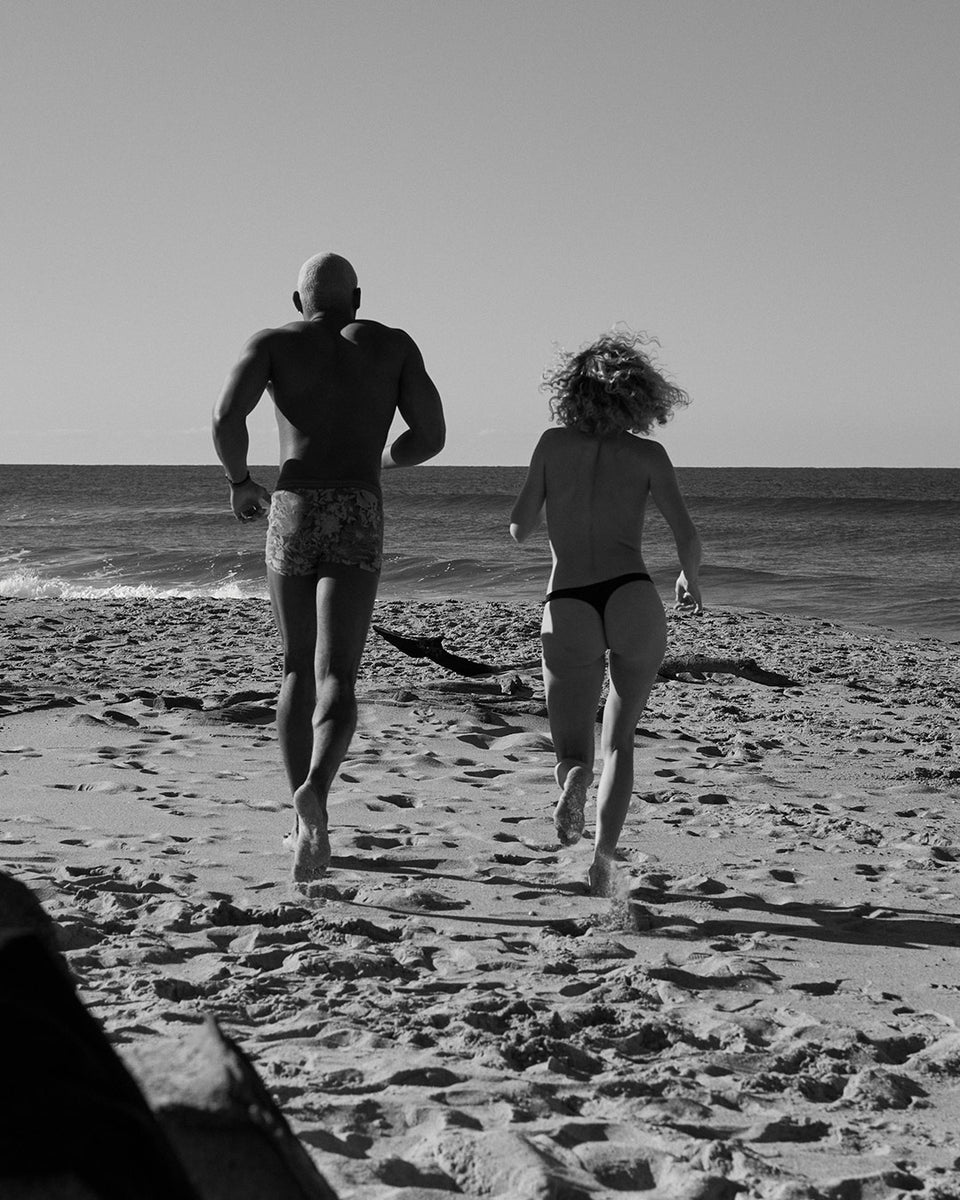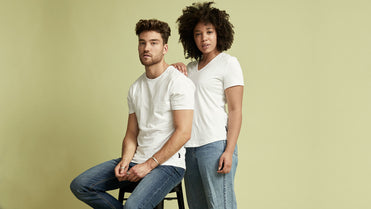Unequivocal ethics, true sustainability, and transparency are integral to our brand here at Citizen Wolf. Unfortunately, those values are rare in an industry defined by greenwashing and marketing that sounds legit, but on closer inspection, doesn’t stack up and is nothing more than hot air.
To 'greenwash' is to purposefully mislead consumers into thinking your brand and product is better for the planet than it really is. It's making your marketing sound eco-friendly, instead of changing the business model (including product) to actually be eco-friendly.
This is a really big problem right now - nearly 50% of companies investigated in Europe earlier this year made sustainability claims that were "exaggerated, false, or deceptive."
To help you get to grips with greenwashing, here’s a list of ‘good’ things commonly used to mislead you into thinking they’re better than they really are…
#1 - "WE ENSURE THE PAYMENT OF MINIMUM WAGE."

The fact is that minimum wages in some parts of the world do not meet living wages.
This statement is entirely qualified by the country the garment worker lives in. Leaving out this pretty crucial bit of info is not only misleading, but unethical in its own right.
The fact is that minimum wages in some parts of the world do not meet living wages. This means that a garment worker paid minimum wage may not be able to cover the cost of necessities like food, water, shelter and medical care.
This statement can sound ethical, and if you don't criticise it too much, can be a big tick in the "this brand does good things" column. But in reality, the brand is sneakily trying to turn a bug into a feature.
In order to avoid this contradiction, Citizen Wolf became Ethical Clothing Australia certified, meaning we've proven that our staff are paid fairly. Not to mention, we own our own factory right here in Sydney – this is really important because it means that we control how the people who make your Tees work, and how they’re paid. Plus, we also voluntarily opted into the Modern Slavery Act just to double down.
#2 - "WE USE RECYCLABLE MATERIALS."
A recyclable plastic bottle is still a plastic bottle - and if it ends up in our oceans, it'll reap the same kind of damage as virgin plastics.
This one's popping up a lot lately.
In general, a lot of different kinds of plastics can be recycled - but that doesn't mean they will be recycled. Nor does it suddenly make plastic sustainable (which it isn't).
Using the term 'Recyclable' can often be an intentional misdirect to confuse people into thinking that the product is made from recycled material. Very different.
A recyclable plastic bottle is still a plastic bottle - and if it ends up in our oceans, it'll reap the same kind of damage as virgin plastics.
#3 - "WE'RE COMMITTED TO TRANSPARENCY."

Fast fashion brands often use this one to seem like they're doing much better than they really are...
Obviously, transparency is a good thing - it's part of the reason we're writing this blog post – it's super important, but it doesn't mean much without the foundation to back it up.
A brand could commit to being transparent, and could actually be transparent in their communication, yet they could still be completely unethical and unsustainable. This often gets said, and then gets completely ignored.
Fast fashion brands often use this one to seem like they're doing much better than they really are when it comes to these issues.
#4 - "WE HAVE STRONG RELATIONSHIPS WITH OUR SUPPLIERS."

Having a strong relationship with your supplier doesn't automatically make them ethical.
Most brands have 'strong relationships' with their suppliers - it's how you build and sell a good product in the first place.
Again, this is an issue of "this thing = this other thing" without any evidence to back up that claim. Having a strong relationship with your supplier doesn't automatically make them ethical. And if the supplier that you’re such good pals with is unethical, well that's nothing to brag about.
Brands that use this claim should provide more information by publishing a list of their suppliers, so anyone can research the (often nebulous) claims.
#5 - "WE USE ORGANIC FABRICS / MATERIALS."

Certification isn't just a marketing tool, it holds brands accountable for their practices.
Don't worry, we aren't ragging on organic fibres – we love and use them exclusively, and they form a really big part of our business.
Unfortunately, a lot of brands that say this either can't meet the requirements of certification to say they use organic materials, or haven't bothered to go through the process of becoming properly certified. Certification isn't just a marketing tool, it holds brands accountable for their practices.
This can be worrying, since it's been documented that false organic textiles claims are a real problem - not only misleading for you, but it also hurts brands like us that are doing the right thing.
#6 - "OUR SUPPLY CHAIN IS REGULARLY AUDITED."

Just BEING audited doesn't make a supply chain ethical.
Much like the transparency issue outline above, this only scratches the surface. Has your brand been independently audited? What have the audits found?
The content of the audit, and its conclusions, are more important to the consumer than the simple fact your brand has been audited at all. Plus, most audits only capture a single snapshot in time, and whilst everything might have been A-OK on the day of the audit, what’s happening on the other 364 days of the year?!
Just BEING audited doesn't make a supply chain ethical. So, if a brand isn't sharing what audits actually find, this means very little.
#7 - "MADE WITH SUSTAINABLE MATERIALS."

If you're making a massive amount of Tees and one in three end up heading straight to landfill, no material can make that sustainable.
It's pretty well documented now that ~33% of clothing made every year gets sent straight to landfill, unsold. This is mainly due to imperfect forecasting of future sales, mixed with economies of scale and the high minimum quantities in most factories. The net result is that most brands make way more clothes than they can ever sell.
So while sustainable materials are excellent - they only make for a truly sustainable garment if they’re made to order. If you're making a massive amount of Tees and one in three end up heading straight to landfill, no material can make that sustainable. You need to ask brands not only about their materials, but whether their business model contributes to the landfill crisis.
FASHION NEEDS CHANGE.
Citizen Wolf is re-engineering the way clothes are made at scale to be both custom fit and carbon negative. T-shirts are our proof of concept with everything made on-demand in Sydney within seven (7) days in our state-of-the-art factory which is also our shop and open to the public.
Distilled from 196 million data points, our proprietary Magic Fit® technology replaces the measuring tape with simple biometrics to automate the process of tailoring from home. Magic Fit® needs only your height, weight and age (plus bra for women) to create a 94% accurate mathematical model of your body which we use to create custom-fit garments faster and more accurately than a human tailor.
Because we make only what we sell and send nothing to landfill, Citizen Wolf produces 48% LESS carbon than the legacy fast fashion equivalent. But we go five steps further to be truly carbon negative by offsetting five (5) kg of carbon for every one (1) kg created via Verified Carbon Standard accredited forestry projects in Tasmania. We are also proudly Ethical Clothing Australia certified, plus we’ve opted into the federal Modern Slavery Act.
Citizen Wolf won Gold at the Good Design Awards (2019) and ‘Innovation Champion of the Year 2019’ (2019) at the National Retail Association Awards, as well as being named one of Vogue’s ‘Future Sixty’ agitators (2019) – “set to define the coming years” and #7 on RagTrader’s Tech 20 list of the most influential people in online fashion (2020).








